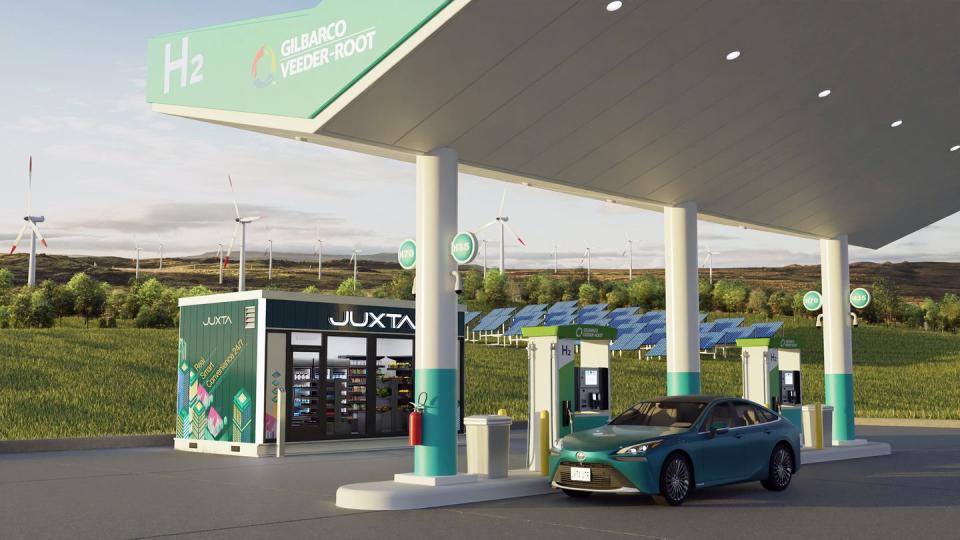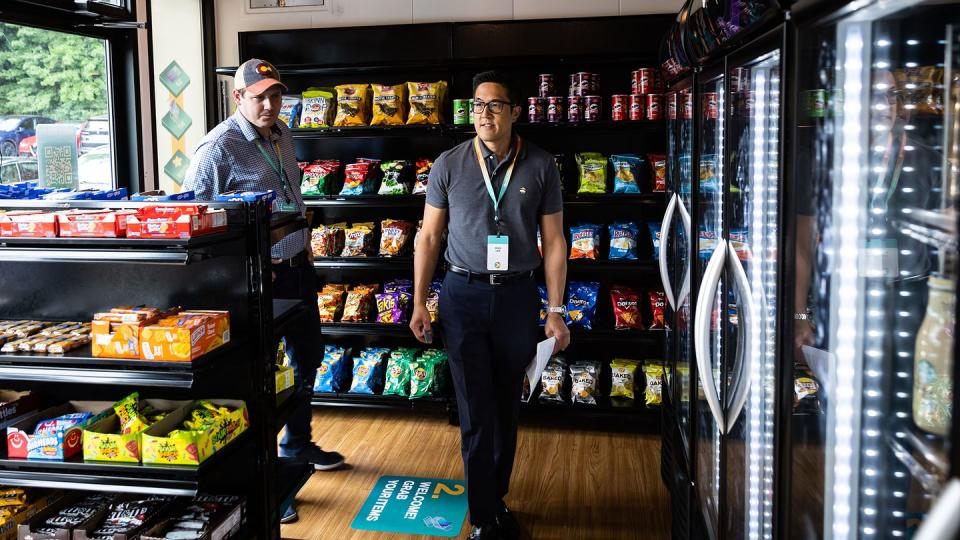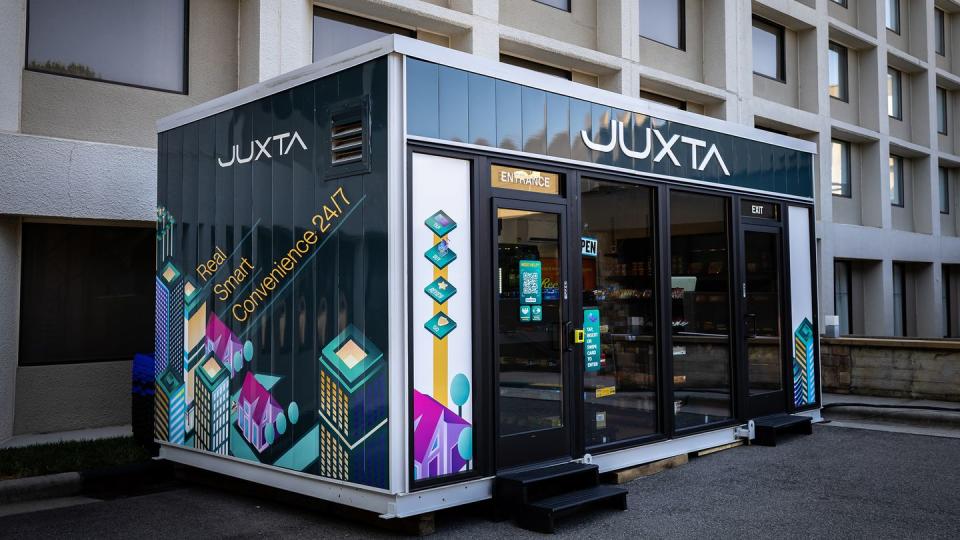Will EV Stations Need Something More Than Autonomous Stores in the Future?

Juxta showcases autonomous micro-retail store concept that features no staff, and can be positioned at an EV charging station, offering food and drink inside.
Each micro-retail store contains 500 to 600 items, with the store being able to detect their removal, identifying customers by camera, without the need for a manual checkout procedure.
Twelve Nomad micro-retail stores can be restocked by a single staff member, the company says, reducing costs to station owners.
We're still in the early stages of EV charging station evolution, with the experience rife with non-working chargers, lines of cars reminiscent of the Carter-era gas shortages, and odd locations far from food or restrooms in semi-abandoned mall parking lots, where you can gawk at the archaeological remains of a Circuit City facade.
We are just now starting to see station builders try to incorporate some familiar gas station features, like a convenience store with staff, when building standalone EV plazas.
But convenience stores with staff, lotto tickets, and Slim Jims—and the vague promise of a working toilet—tend to be their own businesses that just happen to sell gasoline on the side, and for a variety of reasons (including overall EV adoption rates) they haven't quite embraced the EV age.
Convenience stores are evolving along with EV stations, and a few of the latest charging plaza and lounge concepts don't even envision being staffed by humans at all. Station builders are exploring autonomously operated micro-retail stores that are essentially walk-in vending machines.

One such store, developed by a company called Juxta and dubbed Nomad, can be set up in as little as 12 hours, giving visitors the opportunity to purchase food and drink via an automatic payment system that does not include a manual check-out process.
"Once inside the store, customers can select from a range of snacks, sandwiches, hot drinks, and fresh fruit, or select larger items for dinner at home later—whatever the retailer chooses to stock depending on each Nomad's location and customer purchase data," the company says.
Each store contains 500 to 600 items, allowing one employee to restock 12 stores per day, with 264 square feet of retail space. The stores themselves can automatically detect when an item is picked up by a visitor, with the store using cameras to identify each visitor. That information is then used to create a digital basket for each visitor, and then charge their debit or credit card.
Before leaving the store, visitors can verify their purchases on a touchscreen before they exit, but the system is designed to allow a quicker exit without this step.
By now you're probably wondering: Why not just have a normal convenience store with a human inside to sell you things?
"The fully autonomous nature of the Juxta Nomad removes operator dependency on fixed human labor, eradicating the challenge of finding and retaining staff that currently blight the retail sector," the company explains.

At the end of the day, this could be another example of reducing operating costs through automation, even though these stores will still take some humans to operate.
Of course, this trend doesn't rule out human staff at other charging stations, but Juxta's concept is aimed at something in between a full-size convenience store and a vending machine, combining some elements of both thanks to technology.
And micro-retail stores such as Nomad do not have to exist at EV charging stations—the company says this concept is suitable for hospitals, events, college campuses, and other settings.
Will charging plazas of the gleaming EV future eventually have a fully staffed convenience store featuring genre staples like hot dogs slowly rotating on rollers, visitors with clear gambling addictions, and generic cigarettes you've never heard of?
We're still a decade or so away from large charging plazas with available food and drink being truly commonplace, but the EV charging industry is clearly taking note of the dismal experience current charging stations tend to offer.
But we still have to wonder: Is a 7-Eleven with DC fast-chargers too much to ask for in the year 2023 AD?
Are automated micro-retail stores at charging stations a workable replacement for larger, staffed convenience stores, or are such concepts inadequate for EV owners' needs? Please comment below.

 Yahoo Autos
Yahoo Autos 